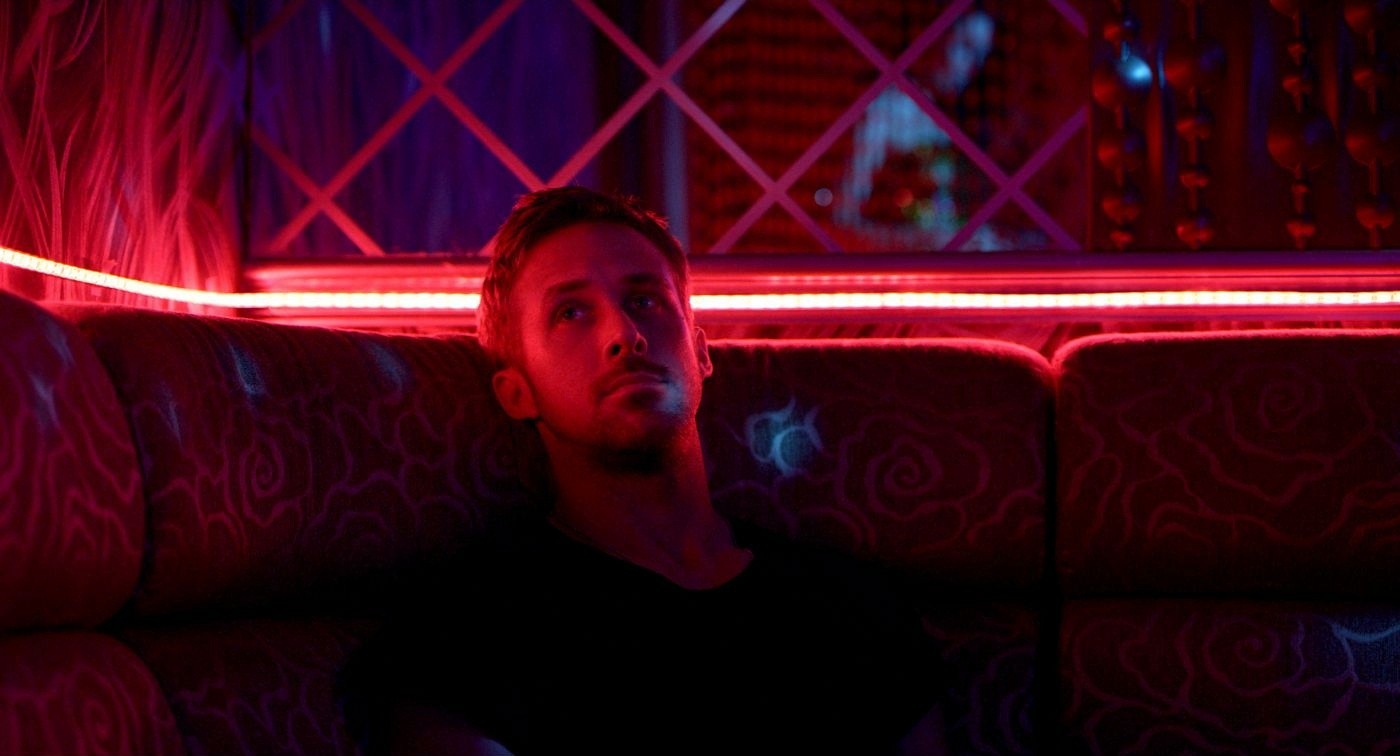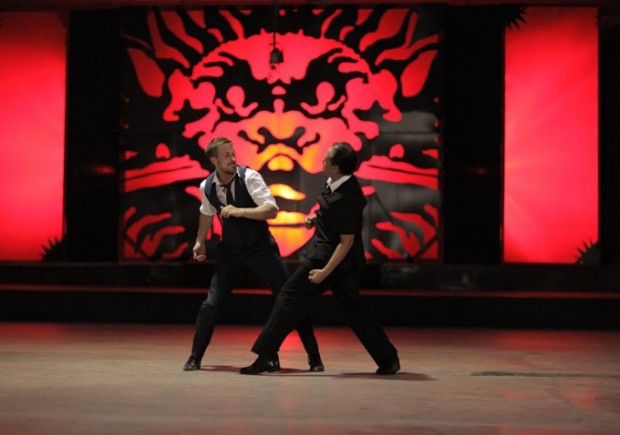When his older brother is killed, Julian (Ryan Gosling), a kickboxing club owner, is sent out to seek revenge by his controlling, criminal mother. Set against a Bangkok backdrop of neon lights and bloodied fists, Only God Forgives was a change of pace for Drive's director Nicolas Winding Refn.
While Drive may have been an artsy film that was able to appeal to a mainstream audience, Only God Forgives is pure art-house cinema. The best way to describe this film is mesmerizing. Deep neon reds and dark, unforgiving blues make up the majority of the scenes, and very little dialogue helps the actions of the characters speak for themselves.
While it may be true that his lines are kept to a bare minimum, Ryan Gosling gave a fantastic, haunting performance as Julian, an emotionally and mentally unstable character whose moral ambiguity helps him fit in perfectly with the company he keeps. Kristin Scott Thomas's performance as Julian's sadistic mother Crystal was noteworthy as well. However, Vithaya Pansringarm's portrayal of Chang, a ruthless, sword-wielding Bangkok police officer truly stole the show.
While Drive may have had it's own head-smashing portrayal of violence, Only God Forgives makes it look like child's play when comes to blood and gore. This is certainly one of the most ultra-violent films in years, holding nothing back and leaving nothing to the imagination when it comes to brutal, unrelenting violence. The murder of Julian's brother is by no means tame, and Only God Forgives is certainly not for those viewers who can't handle on-screen portrayals of violence.
Director Nicolas Winding Refn himself stated that while Drive was like cocaine, Only God Forgives is like being on acid, and I believe that this perfectly sums up the comparison between the two films. Only God Forgives is filled with slow, bizarre images and dialogue, and is the type of film that viewers must sit and truly take in. It is visually stunning, and would make for a fantastic study in color and contrast. Gosling remains draped in deep, dark shadows for much of the film, much like Marlon Brando's Colonel Kurtz at the end of Apocalypse Now.
Cliff Martinez's genius electronica score further adds to the images on screen. When it comes to the soundtrack, "Wanna Fight" is certainly the stand out track, and was featured in some trailers for the film. Much like with Drive, Only God Forgives' soundtrack is masterfully composed and is utterly unique.
Generally, opinions on the film have been vastly split, with some people loving the film and others thinking of it as trash. Despite this split, Only God Forgives is a fantastic, mesmerizing film that you must truly experience to understand. When the credits begin to roll over a melancholy karaoke scene, it's hard to sum up exactly how you feel about the film, but you certainly know that you experienced something unique and brilliant.
While Drive may have been an artsy film that was able to appeal to a mainstream audience, Only God Forgives is pure art-house cinema. The best way to describe this film is mesmerizing. Deep neon reds and dark, unforgiving blues make up the majority of the scenes, and very little dialogue helps the actions of the characters speak for themselves.
While it may be true that his lines are kept to a bare minimum, Ryan Gosling gave a fantastic, haunting performance as Julian, an emotionally and mentally unstable character whose moral ambiguity helps him fit in perfectly with the company he keeps. Kristin Scott Thomas's performance as Julian's sadistic mother Crystal was noteworthy as well. However, Vithaya Pansringarm's portrayal of Chang, a ruthless, sword-wielding Bangkok police officer truly stole the show.
While Drive may have had it's own head-smashing portrayal of violence, Only God Forgives makes it look like child's play when comes to blood and gore. This is certainly one of the most ultra-violent films in years, holding nothing back and leaving nothing to the imagination when it comes to brutal, unrelenting violence. The murder of Julian's brother is by no means tame, and Only God Forgives is certainly not for those viewers who can't handle on-screen portrayals of violence.
Director Nicolas Winding Refn himself stated that while Drive was like cocaine, Only God Forgives is like being on acid, and I believe that this perfectly sums up the comparison between the two films. Only God Forgives is filled with slow, bizarre images and dialogue, and is the type of film that viewers must sit and truly take in. It is visually stunning, and would make for a fantastic study in color and contrast. Gosling remains draped in deep, dark shadows for much of the film, much like Marlon Brando's Colonel Kurtz at the end of Apocalypse Now.
Cliff Martinez's genius electronica score further adds to the images on screen. When it comes to the soundtrack, "Wanna Fight" is certainly the stand out track, and was featured in some trailers for the film. Much like with Drive, Only God Forgives' soundtrack is masterfully composed and is utterly unique.
Generally, opinions on the film have been vastly split, with some people loving the film and others thinking of it as trash. Despite this split, Only God Forgives is a fantastic, mesmerizing film that you must truly experience to understand. When the credits begin to roll over a melancholy karaoke scene, it's hard to sum up exactly how you feel about the film, but you certainly know that you experienced something unique and brilliant.




No comments:
Post a Comment